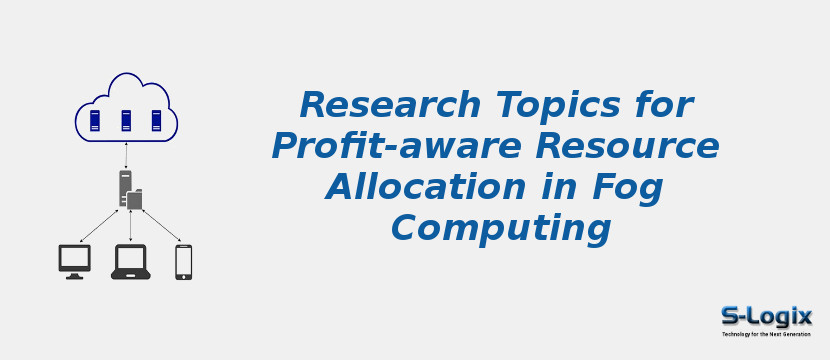Profit-aware Resource Allocation in Fog Computing is a technique that considers the financial aspect of resource allocation in fog computing systems. It involves factors such as the cost of resources, the revenue generated by serving requests, and the energy consumption of fog nodes.
The ultimate aim is to balance the trade-off between maximizing revenue and minimizing resource costs while maintaining service quality. Implementing profit-aware resource allocation algorithms can result in the more efficient and effective use of resources in fog computing systems, leading to improved profitability for fog node providers.
The objective of profit-aware resource allocation is to maximize the profit for fog node providers by dynamically allocating resources based on the demand and availability of resources.
• Increased Revenue: Maximizing the profit for fog node providers, profit-aware resource allocation can increase their revenue, providing a financial incentive for them to participate in the fog computing ecosystem.
• Improved Resource Utilization: Profit-aware resource allocation enables fog nodes to make more informed decisions about how to allocate their resources, leading to improved utilization of resources.
• Improved Service Quality: By balancing the trade-off between maximizing revenue and minimizing resource costs, profit-aware resource allocation can help maintain the quality of service provided to users.
• Limited Information: In some cases, fog node providers may not have complete information about the costs of their resources, the revenue generated by serving requests, or the energy consumption of their nodes. Making it difficult to calculate profit accurately and make informed resource allocation decisions.
• Market Dynamics: The market dynamics for fog computing resources can also impact the effectiveness of profit-aware resource allocation. For example, changes in the supply and demand for resources can lead to changes in resource costs, affecting the accuracy of profit calculations.
• Incentive Alignment: To be effective, profit-aware resource allocation algorithms must be designed so that the incentives of fog node providers are aligned with the overall objectives of the fog computing ecosystem. Profit-aware resource allocation can lead to sub-optimal outcomes if the incentives are not properly aligned.
• Incomplete Information: In some cases, fog node providers may not have complete information about the costs of their resources, the revenue generated by serving requests, or the energy consumption of their nodes. It makes it difficult to calculate profit accurately and make informed resource allocation decisions.
• Dynamic Resource Pricing: To effectively balance resource utilization and cost, fog node providers need to be able to dynamically adjust the prices of their resources in response to changes in supply and demand. Future research can better explore new pricing models and algorithms to support dynamic resource pricing in fog computing systems.
• Economic and Market Models: To effectively support profit-aware resource allocation, fog computing systems must have accurate models of the costs and revenues associated with different resources. Future research can focus on developing more accurate and comprehensive economic and market models for fog computing systems.
• Improved Resource Allocation Algorithms: There is a need for more effective and efficient resource allocation algorithms that can better balance resource utilization and cost in fog computing systems. Research in this area can focus on developing new algorithms or improving existing ones to handle the complexity and uncertainty of fog computing environments.
• Privacy-preserving Resource Allocation: Research on privacy-preserving resource allocation algorithms that can protect sensitive information, such as the costs of resources or the revenue generated by serving requests, in fog computing systems.
• Resource Allocation under Uncertainty: Research on developing resource allocation algorithms that can handle uncertainty, such as unpredictable resource costs or varying request demand, in fog computing systems.
• Big Data Analytics for Resource Allocation: Research using big data analytics to inform resource allocation decisions in fog computing systems.
• Resource Allocation for Real-time and Latency-sensitive Applications: Research on developing resource allocation algorithms that can handle many fog computing applications real-time and latency-sensitive nature.
